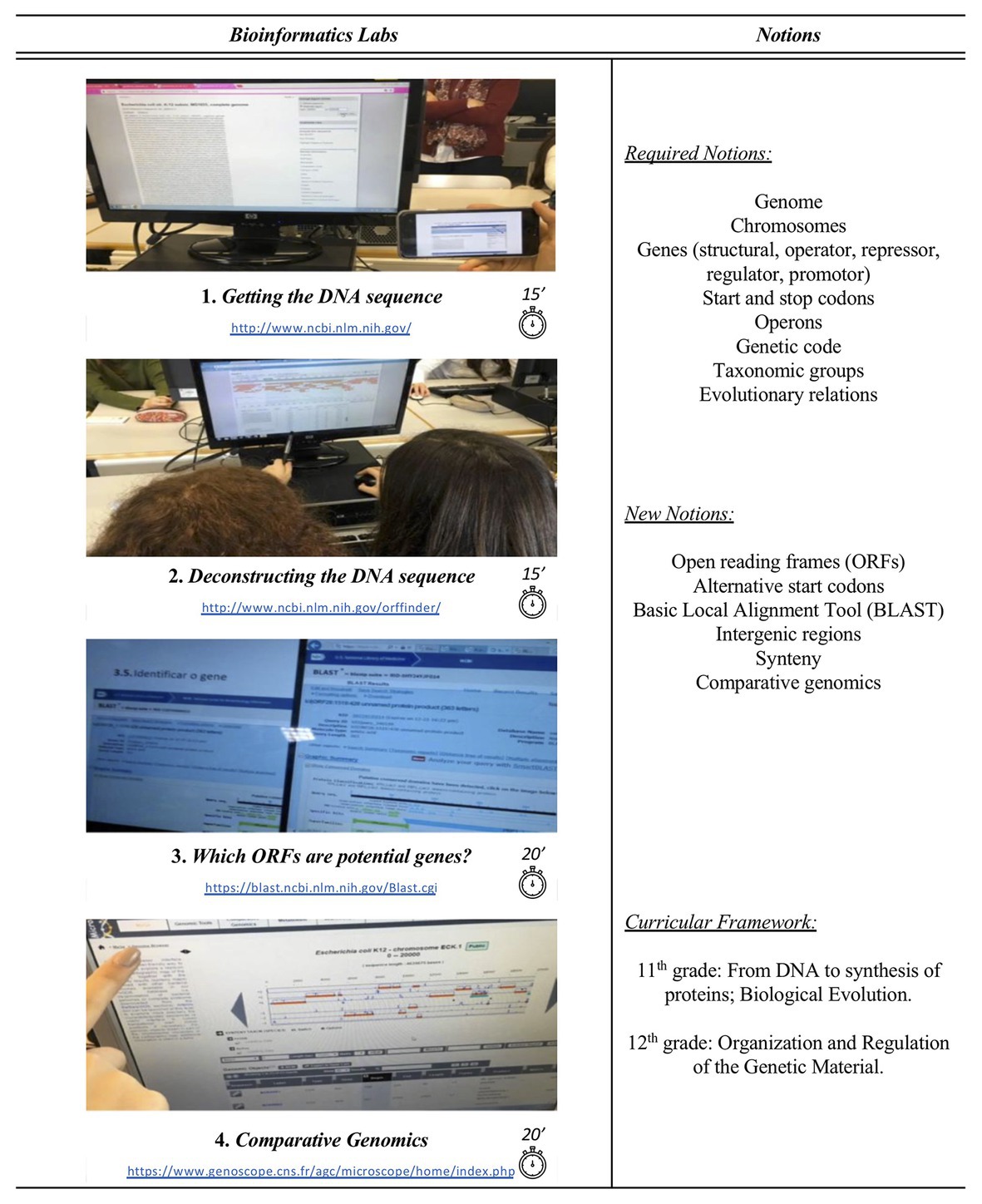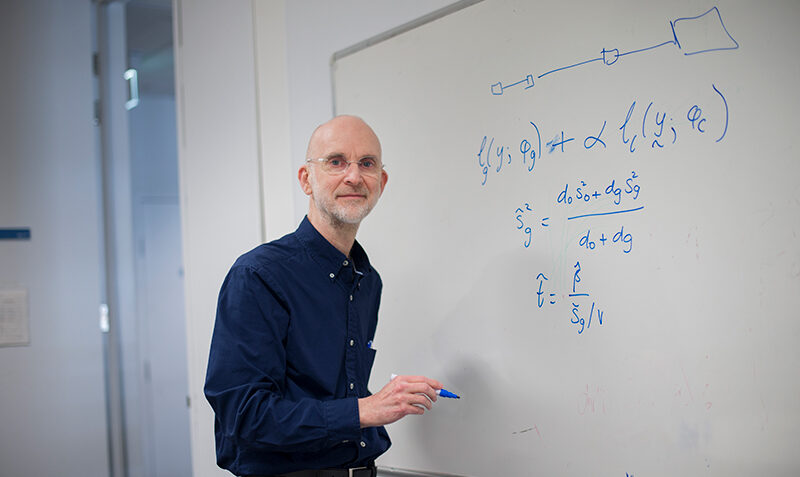Top Guidelines Of Bioinformatics Tutor
Top Guidelines Of Bioinformatics Tutor
Blog Article
10 Easy Facts About Bioinformatics Tutor Described
Table of ContentsLittle Known Questions About Bioinformatics Tutor.Everything about Bioinformatics TutorWhat Does Bioinformatics Tutor Do?All About Bioinformatics TutorSome Known Facts About Bioinformatics Tutor.
Of the total amount participants included in the training, 80% were trainees from public college institutions, while the staying 20% originated from private institutions. To get approved for a certificate of involvement, trainees were required to participate in at the very least 90% of the complete training hours. As an outcome of this need, a remarkable 95% of the individuals effectively obtained their certificates, having not just met the minimum presence criteria however likewise completed all designated activities throughout the training.
During the elevation of the COVID-19 pandemic, specifically in between June and August 2020, the project team was entrusted with organizing specialized training in bioinformatics. This training was especially intended at trainees from the research team Core for Study in Applied Computer at the Federal College of Pará (UFRA) The adjustment to remote learning platforms as a result of the pandemic developed a possibility to check out brand-new training approaches and electronic devices that improved both reach and performance.
To reply to the growing demand in the computing and life scientific researches areas, a sophisticated program was presented in 2020 entitled Introduction to Artificial intelligence. This training course was created to give an accessible yet thorough overview of Artificial Intelligence techniques, particularly as applied in bioinformatics. The program was performed over three months, from October to December 2020, and was provided completely online through the Google Meet system. This online format enabled involvement from trainees across Brazil, a number of whom might not have had the possibility to attend in-person sessions.
The Of Bioinformatics Tutor
A remarkable feature of this course was its focus on hands-on learning. About 50% of the total training hours were dedicated to functional activities where pupils constructed intelligent models and applications in a series of scientific domain names, consisting of genes, molecular biology, and ecological information evaluation. Widely used tools and structures such as Spyder, Google Colab, Jupyter Notebooks, and Orange were incorporated right into the coursework. These systems made it possible for students to participate in real-time information adjustment, model training, and algorithm trial and error.
Sixty of them were affiliated with numerous higher education and learning institutions in the state of Pará, while the continuing to be twenty came from organizations located in 5 other Brazilian states. By introducing Artificial Knowledge in a relevant and sensible context, the campaign served to bridge the void between concept and real-world application, offering pupils with a strong structure for future research study or work in the area.
The training effort formed component of a more comprehensive academic outreach effort pop over to this site referred to as the Bioinformatics when traveling project. This project has, over the years, presented lots of trainees to the globe of bioinformatics and computational biology. The occasions held under this umbrella initiative have taken location throughout several areas and years, as summarized in Table 1 (Listing of events, areas, years, and total varieties of trainees and teachers)
Several of these teams, Get the facts initially brought with each other by their engagement in training events, have because gone on to produce independent scientific research in collaboration with regional academic organizations. The training not only cultivated clinical thinking within the context of bioinformatics however also stimulated collective partnerships that extended past the training environment.
Not known Incorrect Statements About Bioinformatics Tutor
The project itself was conceived and arranged by MB and RR, that managed the planning and implementation of each action. Lectures were delivered by a multidisciplinary group containing MB, FA, EF, KP, JS, DM, SN, LP, LG, RR, air conditioning, and ih. The same group, excluding IH and RR, additionally functioned as tutors for the sensible training components. Funding for the job was provided with the give 88887.200562/ 2018-00 from CAPES. The writers prolong their appreciation to every person who added to the awareness of this project, whether straight or indirectly, since its creation.
The Federal University of Pará's Workplace of Research (PROPESP/UFPA) likewise offered financial backing, especially for the production of the final manuscript. The authors proclaim no economic or industrial problems of rate of interest that can have influenced the research study. All analyses and viewpoints revealed in this post are exclusively those of the writers and do not always show those of their corresponding institutions, the publisher, editors, or reviewers involved in the magazine procedure.

Bioinformatics Tutor Fundamentals Explained
From an instructional perspective, the teaching technique used in the training was deliberately interactive. Classes were conducted in a fashion that encouraged trainee participation and discussion, going beyond rote memorization to discover how concepts are created, used in day-to-day live, and tested in academic settings. The instructional ideology concentrated on supporting both solid and battling pupils, supplying customized support, and building confidence through continual mentorship and patience.

Each group, including around 36 participants, was sustained by 3 advisors-- most of whom were postdoctoral researchers with specialized knowledge. These coaches not just aided make the group projects however also promoted their implementation, making certain that each research concern was both suitably challenging and appropriate. The objective was to provide a biologically realistic context that individuals could explore through flexible goals and access to curated datasets.
For extra insights into the technique and outcomes of this project-based learning technique, readers are directed to S1 Text, which consists of thorough summaries of the instructional structure, assessment approaches, and job motifs made use of in the training sessions.
Some Of Bioinformatics Tutor
Of the overall participants involved in the training, 80% were students from public higher education establishments, while the remaining 20% came from personal organizations. To qualify for a certificate of engagement, students were required to attend at the very least 90% of the overall training hours. Notably, beyond the pupils who registered in the training sessions, 7 experienced trainers took part in providing the courses, while three devoted study professors worked with the overall training process. Approximately 50% of the total training hours were dedicated to useful tasks where pupils constructed smart designs and applications in a variety of scientific domains, including genes, molecular biology, and ecological information analysis. The training not just cultivated clinical thinking within the context of bioinformatics but additionally sparked collective connections that prolonged past the training setting.
Report this page